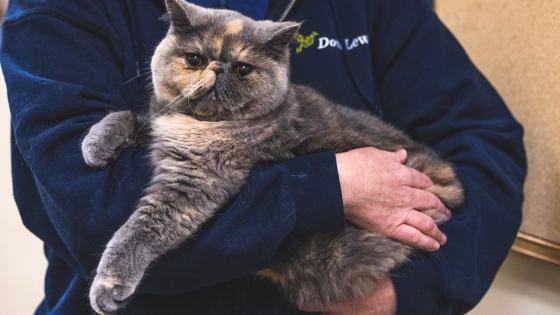
Be Aware of these Common Pet Toxins
As a veterinary hospital that encounters many cases of toxicity in household pets, we want you to be in the know to prevent future ER visits. Review the following household and outdoor toxins to steer your pets clear of ingesting them.
Pesticides
- Snail Poison - Can cause whole body twitching, tremors, and weakness within 1 hour of ingestion, and progress to full seizures and brain damage. Other symptoms include salivation, increased heart rate, vomiting, and diarrhea.
- Rat Poison – May cause spontaneous bleeding 3-5 days after ingestion - can result in weakness, loss of coordination, depression, and anorexia even before bleeding occurs.
Food & Drinks
- Chocolate - Cocoa and chocolate contain theobromine, a chemical that can affect heart rhythm and cause vomiting, diarrhea, and seizures if ingested by pets.
- Alcohol - Even in small doses, alcohol can cause drunken behavior, trouble breathing, or cardiac arrest.
- Grapes & Raisins - Just a handful of grapes or raisins can damage your dog’s kidneys or even prove deadly. Even small amounts in trail mix or snack boxes can be dangerous.
- Coffee & Tea - Coffee, tea, energy drinks, dietary pills, or anything else containing caffeine should never be given to your pet, as they can affect the heart, stomach, intestines, and nervous system.
- Dough - Unbaked dough that contains yeast can expand and release gases in your dog’s stomach or intestines, resulting in nausea, vomiting, diarrhea, and even life-threatening bloat and twisted stomach. Some yeast dough also ferments into alcohol, which can cause alcohol toxicity.
- Sweeteners - Many sugarless gums and candies contain xylitol, a sweetener that is acutely toxic to dogs. Ingestion can cause vomiting, weakness, a life-threatening drop in blood sugar, loss of muscle control, seizures, and liver failure.
- Onions & Garlic - Large amounts of onions and garlic in any form - even powdered - can endanger your pet’s health. Effects can range from mild gastrointestinal upset to severe anemia.
Household Items
- Ornamental Plants - Pet owners should be aware that many ornamental plants including poinsettias, lilies, narcissus, mistletoe, and holly are harmful to pets.
Chemicals
- Antifreeze - During the summer, cars are more likely to overheat and may leak antifreeze – the bright green liquid found oozing from that car with the engine fan on. Antifreeze tastes sweet and may be inviting to pets, but it is highly toxic even in very small amounts.
Human Medications
- Sleep Aids - These drugs can cause agitation, severe lethargy, lack of coordination, and slowed breathing. (e.g. Klonopin®, Ambien®, Lunesta®)
- Anti-Depressants - Ingestion can cause dangerously elevated heart rate and body temperature, as well as life-threatening tremors and seizures. (e.g. Zoloft®, Cymbalta®, Effexor®, Lexapro®)
- Pain Relievers - Just one pill can cause serious stomach and intestinal ulcers, kidney failure, liver damage, and red blood cell injury. (e.g. Advil®, Aleve®, Motrin®, Tylenol®)
Narcotics
- Marijuana - Most commonly, dogs eat foods containing marijuana or the dried plant by itself. When those foods also contain chocolate, the risk of additional poisoning is increased. It’s extremely rare for pets to ingest enough marijuana to cause death, although they may still need medical treatment to recover from poisoning.
If you believe that your animal is ill or may have ingested a poisonous substance, contact your local veterinarian, the ASPCA Animal Poison Control Center at 1-888-426-4435, or DoveLewis at (503) 228-7281 immediately.



